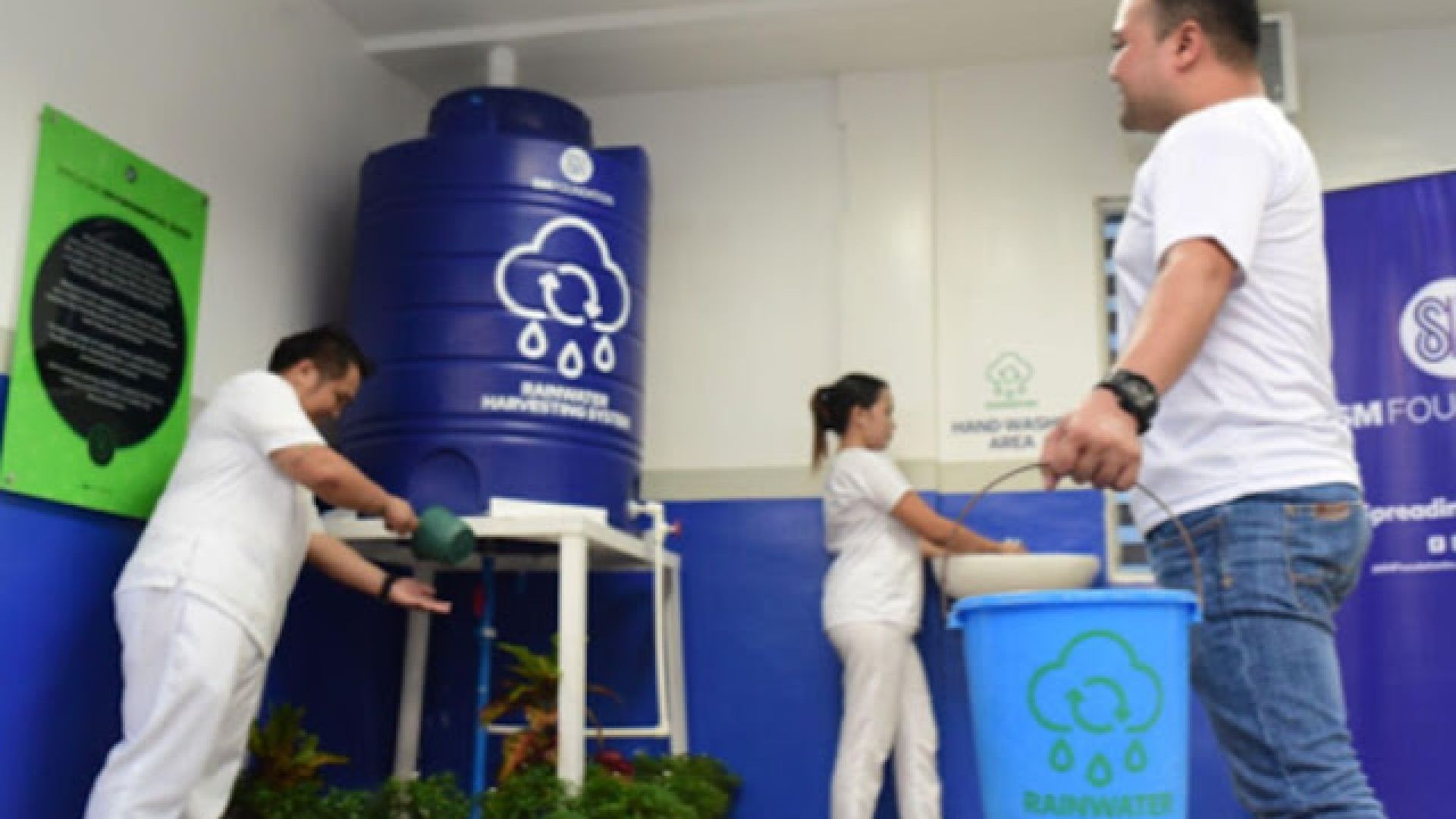RAINWATER harvesting is a way of collecting and storing rainwater for later use. It is an effective and adaptable way to conserve water and reduce reliance on main water supplies. Due to its efficacy, it has been applied by many civilizations in history and is being utilized today by forward-thinking institutions as a sustainable water management strategy.
SM group’s social good arm, SM Foundation, Inc. (SMFI), for one, has embraced this by installing rainwater harvesting systems in two of the local health centers it recently refurbished–Brgy. Irawan Birthing Facility in Puerto Princesa, Palawan, and San Fernando, Cebu Primary Health Care Facility.
SMFI’s Health and Medical Programs proactively implemented this innovation to help sustain the health of the local community while preserving the environment.
Ready in times of emergency
Dr. Alfredo P. Manugas VI, Municipal Health Officer and Health Department Head of San Fernando, Cebu Primary Health Care Facility, said that while water is crucial to their operations, water supply is not always available in their municipality, even their center.
 SMFI Health and Medical Programs senior project manager Albert Uy runs through how the system functions
SMFI Health and Medical Programs senior project manager Albert Uy runs through how the system functionsSMFI ensures that the facility is convenient and manageable to maximize its purpose. It operates without electricity, increasing its sustainability. To harvest water for non-potable use, it collects rainwater from the roof and gutter. The water is filtered through vinyl-coated mesh filters to ensure its quality before being stored in the 800-liter storage tank.
To guide users for safe recycled water use, all faucets connected to the facility have visible labels. Alongside this innovation, SMFI also used air-cleaning paints, LED lighting fixtures and appliances, and locally sourced plants to create a clean and comfortable environment for patients and health workers.
These green innovations exemplify the SM group’s commitment to the environment and community health within the broader context of the SM Green Movement. With the social good impact of the two rainwater harvesting systems, SMFI targets to replicate this initiative in other health centers in its pipeline, further improving water security in the face of challenges.





